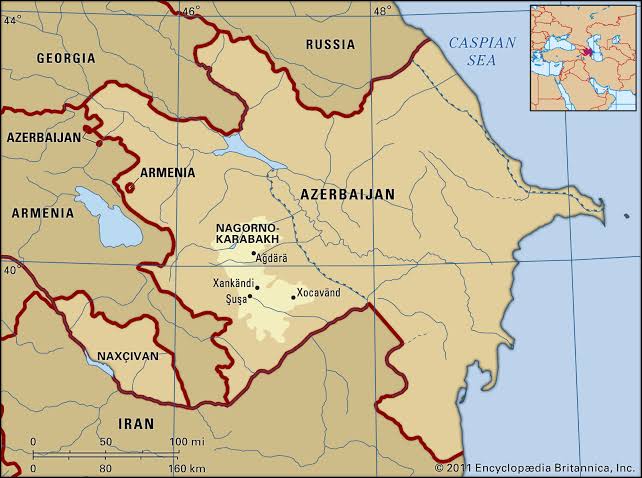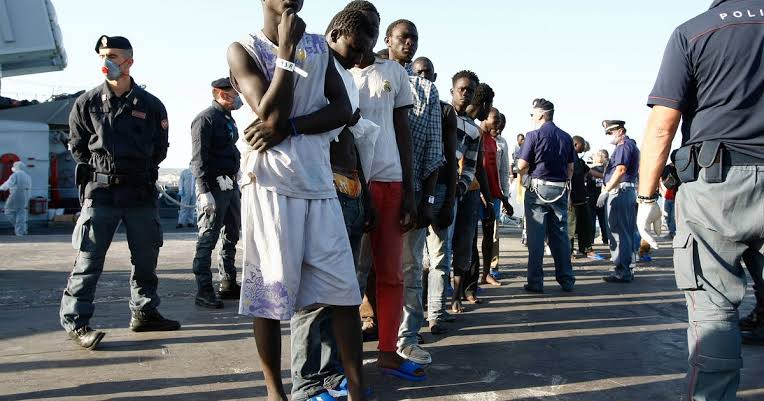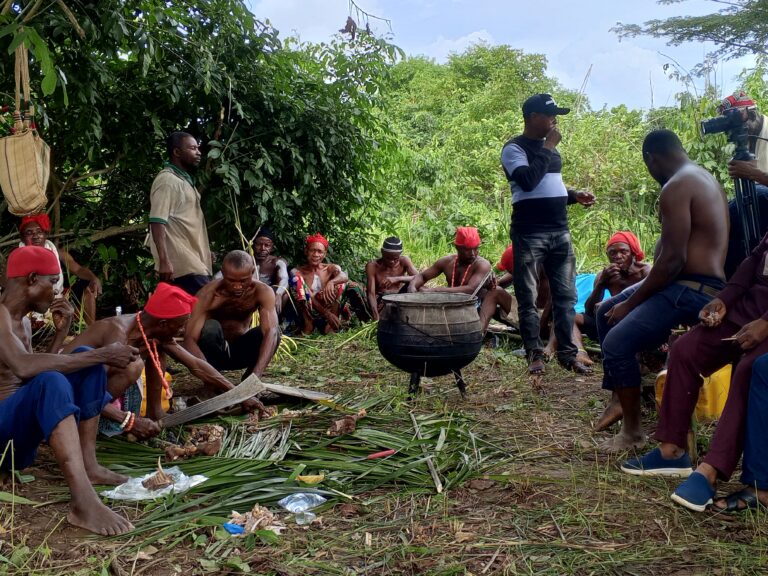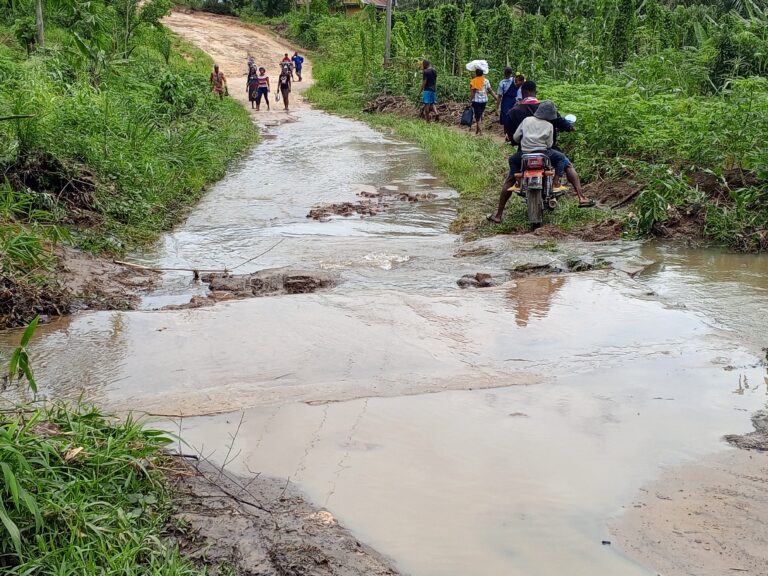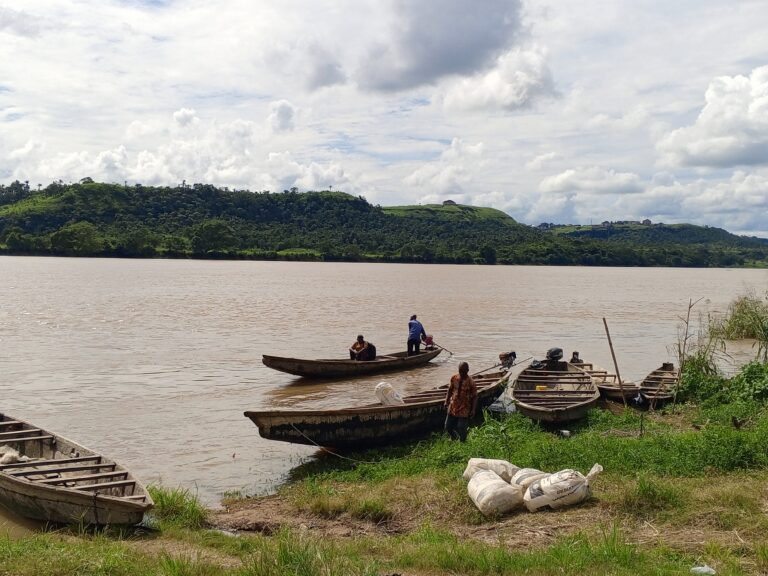By Frank Ulom
We’ve decided to refresh your minds on the unassuming, refined and modest personality of Distinguished Sen. John Owan Enoh as he turns 54 today, June 4th, 2020. The article below has in content, who Sen. John Owan Enoh is, What he has done, what he is doing and what he would do. Read and get refreshed;
HIS EARLY YEARS
Senator John Owan Enoh was born in the agrarian community of Agbokim Waterfalls, Etung Local Government Area of Cross River State to the family of PA Louis Owan Enoh on Saturday, June 4, 1966.
He attended St. Gregory’s Primary School, Agbokim Waterfalls (1972-1978), St. Augustine’s Seminary, Ezzangbo (1978-1983). Very early in life, Owan-Enoh began to demonstrate prodigious intellect, clarity of thought and uncommon eyes for details, endowments imbued in him by God Almighty that would later serve him well in life and would be pivotal to his meteoric rise to the pinnacle of success.
After passing the West African School Certificate Examination with distinction, John Owan Enoh gained admission to study sociology in the faculty of Social Sciences, University of Calabar. As a student, he continued to blaze the trail of excellence in his studies. By 1988, when he graduated with a B. Sc. Hons. Degree in sociology (Second Class Upper Division), he won the best Graduating Student Award, Sociology Department in the Class of 1988. For his Compulsory National Youth Service, Senator John Owan Enoh served as an assistant to the Director-General, Government and Administration, Governor’s Office, Abeokuta, Ogun State between 1989 and 1990.
The world of academia held great promise to Sen. John Owan Enoh. Those who knew him were unflattering in their assessment that he would flourish in the University environment. Given his academic prowess, Sen. Owan-Enoh had a strong motivation to venture into the world of academia.
Between 1991-1997, he was admitted into the world of academia as a Lecturer, in the Sociology department of the University of Calabar. He applied his fecund intellect, unwavering passion and commitment to excellence to his work and began to shine like a million meteors.
His dedication and commitment to his work left a lasting impression in the minds of his students who were enamoured by his cerebral mind and his power of delivery in the classroom.
A young Lecturer with the temperament and maturity of a sage must as a necessity attract the attention of students. It was therefore easy for him to win the hearts and minds of his students.
He became famous as the Lecturer who came to class without any book but regaled his students with his brilliance as he poured out knowledge off hand.
Even as students began to address him in superlatives, he never allowed the cult status which they ascribed to him and which he never embraced get into his head.
As one of the few Lecturers from Etung in the University, he came face to face with the deprivation and financial challenges of several of the students from his Local Government Area.
He felt unrestrained compassion for them and was very receptive to the demands of these students and with the meagre salary of a university Lecturer, tried to solve some of their financial problems the much he could. Words of his generosity spread like wildfire and it was not long before he was confronted by a deluge of requests.
His earnings as a university lecturer was meagre and stretched to the limit, leaving him fully aware of his obvious limitations and very determined to seek a pathway for the emancipation of his people.
POLITICAL JOURNEY
By 1997, when Late General Sani Abacha unveiled his political transition programme, he opted for politics. He contested and won election to represent Etung State Constituency in the Cross River State House Of Assembly under the platform of Grassroots Democratic Movement (GDM). Thus, his remarkable political journey started.
His aspiration embodied the dreams of many of his people who were conversant with his proclivity for hard work, generosity and support for worthy causes and compassion for bringing succour to those in need.
The cancelation of the Sani Abacha Political Transition Programme following his demise proved to be a temporary setback to his political journey. In 1999, his mandate to serve his people was re-validated in a fresh election during which he won by a landslide this time under the platform of All peoples Party (APP).
As a result of his love for his people and passion for selfless service, it was natural for him to make the people the focal point of his representation. Very early in his political life, the Peoples Senator who has risen to the summit of his legislative career, made a vow to himself and God Almighty to touch as many lives as possible and to empower his people to the best of his ability.
Indeed the centrality of his people to his representation and politics informed his founding the Real Mark Foundation in 1999, a vehicle through which he strove to empower his people through critical interventions and a plethora of empowerment initiatives.
Senator John Owan Enoh’s philosophy of service which places the highest premium on the primary of collective interest and the people as repositories of power is in tandem with Bill Gates vision on leadership. Bill Gates said: “As we look into the next century, leaders will be those who empower others”.
Senator John Owan Enoh is a trail blazer, arguably the Chief proponent of empowerment as a tool to cure widespread poverty in our society. He may not have succeeded completely in stopping poverty in its tracks given the peculiar role of the legislature in our presidential democracy but he has continued to take decisive steps to prepare his constituents for the future by empowering them with a plethora of capacity building initiatives.
In his legislative tour of duty, Real Mark Foundation assisted in the refurbishing of schools with hundreds of his constituents benefiting from his scholarship scheme. Between 1999-2003, Senator John Owan Enoh served as minority leader and Chairman, Committee on information, Cross River State House Of Assembly. He was outstanding and was one of the influential voices in the House, a fact which was not lost on the people.
HIS LEGISLATIVE WORK, HOUSE OF REPRESENTATIVES (2003-2015)
By 2003, the people of Etung and Obubra Local Government Areas sent Sen. John Owan Enoh an illustrious son in whom they were well pleased to the House of Representatives.
Senator John Owan Enoh hit the ground running. In terms of legislative work, he was thorough, persuasive, unrelenting and in no time earned the respect of his colleagues. Between (2003-2005), he was Deputy Chairman, culture & tourism, Deputy Chairman Appropriation, (2005-2007), Chairman, Committee on Finance (2007-2011), Chairman, Committee on Appropriation (2011-2015). These were in addition to his membership of other standing committees of the House where he was very active, influential and respected. His time in the House Of Representatives has been variously described as the Golden Years in representation by his constituents who felt the direct impact of his legislative work. Within the period under review, Sen. John Owan Enoh influenced the employment of hundreds of his constituents into several Federal Government Ministries, Departments and Agencies. They include, Federal Inland Revenue Service (FIRS), Nigeria Customs Service, Nigeria Immigration Service, Nigeria Police, Corporate Affairs Commission (CAC), Nigeria Army, Petroleum Trust and Development Fund (PTDF), Federal Mortgage Bank, Nigeria Security Civil Defence Corps (NSCDC), Nigerian Maritime Administration and Safety Agency (NIMASA), Nigeria Airspace Management Agency (NAMA) amongst others. As the member representing Obubra/Etung Federal Constituency (2003-2015), Sen. John Owan Enoh rolled out education scholarship schemes which he envisioned to bring succour and financial assistance to bright students from deprived background in order to enable them successfully complete their education. The impact of this scheme is huge as thousands of students have benefited from this scholarship scheme. The vocational empowerment of his constituents is another area Sen. John Owan Enoh has also excelled. Designed to assist his constituents in diverse fields make success of their businesses, beneficiaries have received cars, motorcycles, sewing machines, barbing salon equipment, tiling machines, computer repair kits and start-up capital under the Senator Owan Enoh Vocational Empowerment Schemes. Also, several beneficiaries have received vocational training in diverse fields to empower and prepare them for a life in business.
His years of representation in the House of Representatives can best be described as a golden Era as all the communities within his constituency felt the impact of his representation. He was able to attract so many projects with direct impact on the lives of his people. These include but not limited to sixteen motorized Boreholes, Comprehensive Cottage Hospital Okoroba, Comprehensive Cottage Hospital, Ovonom and a Cottage Hospital he personally built with his own resources and donated to his people, the Agbokim Waterfalls Community. Sen. Enoh also Facilitated the construction of National Youth Development Centre, Agbokim Waterfalls, the renovation of the residence of Head of Station, Cocoa Research Institute of Nigeria, CRIN, the renovation of the Health Centre and office complex at the institute. Other projects include the construction of classroom blocks at Eja, Osopong 1, Bendeghe and Itaka. Within the same period, he also Facilitated the construction of six classroom block at Government Science School, Agbokim Waterfalls, VIP toilets at Itaka and Apiapum; construction of Divisional Police Headquarters, Effraya, State Security Service Office Block, Effraya, Ajassor International Market, Solar Powered Street Lights in Ohana, Onyadama, Ohana-Edor, Ogada 11, Ogurude, Iso Biko Biko, Nkum Okpambe, Yala, Mile 1, Obubra, Ofumbongha No. 1, Obira, Agbokim Waterfalls amongst others. He also attracted the construction of network of roads within Ababene and Agbokim Waterfalls.
Senator John Owan Enoh’s work in the House of Representatives was monumental, epochal and a reference point in effective representation. Almost a decade before the present administration’s Treasury Single Account (TSA) policy, Senator Owan Enoh as Chairman, House Committee on Finance began the campaign for ministries, Departments and Agencies of Government to domicile their funds in the Federation account instead of the widespread practice of agencies of government maintaining multiple accounts and spending generated revenues without appropriation.
As Chairman, House Committee on budget and appropriation (2007-2011), the committee conducted an Investigative Hearing on Revenue Generation and Non-remitances by government Ministries, Departments, Agencies and Statutory Corporations into the Federation account. Over two hundred and twenty MDAs forwarded memoranda and made oral submissions during the Public Investigative Hearing that lasted from June 19th to 16th December, 2008. One of the key findings of the Sen. John Owan Enoh led investigative hearing was the discovery that a whopping sum of 3.2 trillion was spent by government ministries, agencies and corporations without appropriation. Also, as a result of his ground-breaking work, over N400 billion was paid into the Federation account by the MDAs. This was in compliance with the far reaching recommendations of his committee.
Under the leadership of Sen. John Owan Enoh, the House Committee on Budget and appropriation, organized a 2-day National Revenue Summit in collaboration with the Federal Inland Revenue Service on 15th and 16th December, 2008 with the theme: Growing the National Revenue: A case for Revenue Remittance. Sen. John Owan Enoh remains a strong moral force in the National Assembly. By June 2012 when the House of Representatives removed Hon. Farouk Lawan as Chairman of Ad-hoc committee on Fuel Subsidy regime over the alleged $620,000 bribe, the House leadership relied on one of its most respected members for redemption. Sen. John Owan Enoh, the then Chairman, Committee on Appropriation was appointed to head the Adhoc Committee, a clear demonstration of the conference the House Leadership reposed on his character, competence and leadership. Senator John owan enoh is in all ramifications, a quintessential Lawmaker with a Midas touch. It is gratifying to note that the full impact of his vast experience in the public service especially as Chairman, House Committee on Appropriation was felt on the national stage. Prior to his tenure, our budget circles were bogged down by endless bickering and amendment of passed budgets before presidential assent. Suffice it to state that these avoidable confrontations impacted negatively on the national economy, Owan Enoh spearheaded the emergence of a new order marked by seamless passage and assent to the National budget. It is not for nothing that his name commands the respect of the vast majority of his colleagues in the National Assembly and his constituents who appreciate his selfless and effective representation. He epitomizes humility and runs a “door less” policy which has successfully removed the vestiges of high office for him to relate with his constituents unencumbered. By the end of his tour of duty in the House of Representatives, the love affair between him and his people waxed even stronger and crystallized into a compelling call for him to run for Senate, a position occupied by one of the illustrious sons the Central Senatorial District, Cross River State, Nigeria at that time. The calls for him to run for Senate by the people of the Central Senatorial District came in torrents and by the time it reached a crescendo, he had no alternative than to bow to the wishes of his people.
SENATOR JOHN OWAN ENOH IN THE SENATE
Senator John Owan Enoh’s Senate report card is no less impressive. Breaking with legislative tradition, the majority All Progressive Congress led Senate leadership appointed him as the chairman of the committee of Finance in 2015. In the words of the Senate President, His Excellency, Dr. Bukola Saraki, his appointment as the Chairman, Senate Committee on Finance was in recognition of his experience, knowledge, passion and commitment to the highest standard of legislative excellence. After an electoral landslide which brought him to the Senate, Senator Owan Enoh returned back to the people barely one month after his inauguration on a “Thank You Visit”, a move unprecedented in the annals of politics in the Central Senatorial District.
Sen. Owan Enoh used the opportunity of his home coming to express his profound gratitude to his people for their continuing support. The visit took him to all the six local Govt. areas that make up the central senatorial district and ended up with a thanksgiving service. Determined to bring representation closer to his people, Enoh opened constituency offices in all the six local Government areas making up his senatorial district with full and functional staff.
This unprecedented step, the first of its kind in contemporary politics underscored the special place his people occupy in his heart. He continues to emphasize humility in service and as his tenure in the senate got off to a flying start, he organized a one day retreat for his staff with the theme: “Supporting Owan Enoh to Deliver Service”. The retreat emphasized the need for his staff to imbibe the attributes of humility, accessibility, openness and selflessness as they relate with the people at the grassroots.
As the chairman Senate Joint Committee which investigated allegations that system specs, a software solutions provider, charged 1 percent for transferring ₦2.5 trillion to TSA and in effect deducted billions of naira as commission. Sen. Enoh and the Joint Committee were unequivocal in rejecting the whopping commission. As a result of their work, the senate slashed the ₦7.6 billion accrued charges to system specs, commercial banks and Central Bank of Nigeria (CBN) from transfers to Treasury Single Account (TSA) by govt. agencies to the sum of ₦656,504 million and ordered the Central Bank of Nigeria to terminate the one percent charge which was subject of criticism by several well meaning citizens. As a reflection of the confidence of the senate leadership in his vast experience and capability, senator John Owan Enoh also chaired the Joint session of both the senate and the House of Representatives on the Medium Term Expenditure Framework (MTEF) for the 2016, 2017, 2018, budgets.
As senator representing the central senatorial district, his years in the senate bears the unmistakable imprimatur of a servant leader driven by a strong passion to deliver on a strong mandate upon which he rode the crest of power to the senate.
Indeed, the blistering pace of his legislative work and achievements is unrelenting. At huge personal cost which underscores the high premium he places in education and capacity building of the youth, Sen. Enoh unveiled a comprehensive education support scheme in 2016 with 4,023 students drawn from his senatorial district as beneficiaries. This critical intervention alone continues to impact the lives of indigent students who would have had a difficult time completing their studies.
Also, in 2016, Sen. Enoh spared no effort and resources to bring to Ikom,Muyiwa Afolabi, a motivational speaker to coach and mentor the youths on self-reliance. This event was under the auspices of “Central Youths Meet Sen. John Owan Enoh”,an annual programme which has endured with the support and guidance of Sen. Enoh. Afolabi, who delivered a paper titled: ‘Central Youths: Developing a Passion for Excellence’ in the serene ambience of Jorany Hotels, Ikom advised the youths to harness the transformative capacity of their talents to create a bright future. In 2017, Sen. Enoh tasked the youths on self-reliance. This time, he brought to Ikom, Leke Ojikutu, the Bulk SMS pioneer and Agba Jalingo, publisher of Cross River Watch, an online medium to address the youth during a one day summit.
The theme of the summit: Tapping into the wealth of the Internet for Self Employment prepared the ground for a 3 week intensive training on ICT after which 66 youths drawn from the 66 wards of the central senatorial district were empowered with laptops. Senator John Owan Enoh is committed to legislative work as much as he is committed to peace making within his senatorial district.
To this end, he embarked on several peace missions when communities within the senatorial district were involved in fierce clashes. He was on hand to arrest the situation when bloody clashes broke out between communities of Mkpani, Nko and Inyima in Yakurr Local Government area and Oyadama, Ababene and Iyamitet communities in Obubra Local Government area. He was also on hand to forestall further loss of lives and destruction of properties between Bendeghe Ekiem and Akparabong Communities. Apart from launching effective peace missions, Sen., Enoh provided relief materials running into millions of naira in the bid to assist the affected people rebuild their lives. He also sponsored a central senatorial district Security Summit to address the recurring communal clashes among the warring communities.
In the areas of job creation, attraction of critical projects, capacity building, youth empowerment, effective representation and law making, he set a record that will be difficult to break let alone surpass. Some of the projects he attracted to communities across the senatorial district include twelve ongoing road projects,44 completed and commissioned solar powered boreholes, construction of culverts and drainages to stem the devastating impact of erosion, solar powered street lights and Bio-resources Development Centre, Effraya.
When he turned 50 in 2016, he launched JOE Diabetes Foundation in a determined effort to arrest the scourge of diabetes among his constituents. Apart from several free medical outreaches embarked on by the foundation, it also flagged off several diabetes advocacy and sensitization campaigns in secondary schools across the senatorial district. In 2016, Sen. Enoh led a commemorative walk in Ikom as part of activities marking the 2016 World Diabetes Day.
Worried by the poor state of Federal roads in Cross River State especially the Calabar-Ugep-Obubra Ikom-Ogoja road, Sen. Enoh made contacts at the highest level of the federal government to bring government attention to it.
In this regard, he worked closely with Senator Udo Udoma, Minister of Budget and National Planning and Babatunde Fashola, Minister of Power, Works and Housing to win budgetary allocation for the ongoing rehabilitation and reconstruction of the road. Two years into his tenure as senator, he organised a Town Hall Meeting at Ikom by August 2017 during which he presented a midterm report on his representation and achievements as senator.
Apart from his impressive work at the committee level, Sen. Enoh has sponsored several bills and motions in the Senate between 2015 to date. The bills include: Emergency Power Bill, 2015, Foreign Exchange (Control and Monitoring) Bill, 2015, Payment Systems Management Bill, 2015, the Nigeria Police Academy (Establishment, etc) Bill, 2015, Law Officers Bill, 2016 and a Bill for the Establishment of Federal Polytechnic, Ikom. These bills are currently receiving legislative attention.
He has attended several courses at home and abroad on capacity building in aid of his legislative work including a course in Public Financial Management, Harvard Kennedy School, Harvard University (Executive Education), Telecoms Regulatory Master Class – Bath UK , Law Making for the Communication Sectors – BMIT, Johannesburg, South Africa , and Influence and Negotiation, Stanford Graduate School of Business amongst others. Sen. Enoh is a fellow, Centre for Peace and Conflict Studies, CEPACS, University of Ibadan. He was also listed as one of Nigeria’s 50 most Outstanding Legislative Icons (1999 – 2010) in a definitive book published by Parlia Consult, a Consortium of Legislative Historians. He holds an Msc (Hons) Demography, Post Graduate Diploma in Management (PGDM), and MBA.
Senator Owan Enoh is a voice of the voiceless, the weak and infirm, the disabled and a beacon of hope for his people. During the 2015, 2016, 2017 Christmas celebrations, he was at home with his constituents and as usual splashed gifts on them. His annual Christmas visits across the six local government areas of the senatorial district brings hope and smiles on the faces of his constituents and demonstrates the special place his people occupy in his heart.
Sen. John Owan Enoh was voted Senator of the year 2016 in Cross River State in the first ever assessment of the Senate by the National Assembly based CSOs on profiling, Data-Bank Management and Leadership Assessment – Centre for Nigeria Leadership Perspective, CENLEP NASS. He is happily married to Rachel and the marriage is blessed with 3 children – Rachel, John and Victor.
And there After:
Sen. John Owan Enoh in 2019 decided to pursue an ambition to rescue Cross River State. An ambition which was described as “The Masse’s Ambition”. He emerged as the Gubernatorial Candidate of the All Progressives Congress but not without the distraction from a set of persons who feels disenchanted and refused to embraced peace. Amidst all distractions coming within his party, Sen. John Owan Enoh was the first and the only Governorship candidate that visited twice all 18 LGAs in Cross River State. Owan was generally acceptable and got overwhelming support, which became a threat to other candidates especially Sen. Prof. Benedict Ayade, the People’s Democratic Party Gubernatorial Candidate. A day to the elections, the Independent National Electoral Commission, INEC wrongfully delisted all candidates of the All Progressives Congress. This affected the outcome of the elections but Distinguished Sen. John Owan Enoh was still able to pull a reasonable amount of votes that would have put him ahead as winners, but the umpires announced the PDP candidate.
Sen. John Owan Enoh after the elections, didn’t stopped being a good man that he is. He continues his unassuming gestures towards solving societal issues and meeting up with the needs of those who come around him. His service to Humanity didn’t end, even after leaving office as a Distinguished Senator of the Federal Republic of Nigeria.
Within this period of political rest, Sen. John Owan Enoh has given several jobs to Cross Riverians in most of the Federal Government agencies like NNPC, FIRS, CBN, CUSTOMS, NDLEA and others, and has influenced a few appointments for Cross Riverians. He has also personally facilitated a few projects amongst which are;
√ The ongoing Construction of 23kms Agbokim-Etomi road in Etung Local Government Area.
√ The ongoing construction of 3kms Nkon bessong/Nkon Alor Road, in Biajua community and 1.3kms Efare road in Bashua community, all in Abu Ward, Boki LGA.
√ The construction of 560Ms Enoghe old water board road, 1km Portharcourt road in Ikom Town, Ikom Urban Ward 1 and 2km Edor/Abinti road construction in Abinti 1, Abayong Ward, all in Ikom LGA.
√ The ongoing Construction of 4.8kms Okangkekor road construction in Olulumo Ward, Ikom Local Government Area.
√ SEN JOHN OWAN ENOH (JOE) Foundation Donates palliatives worth millions to Diabetics, items which included wheat, groundnut oil, salt, Rice, Maggi and other household items to members of the public who are diabetic.
Distinguished Sen. John Owan Enoh was recently nominated and inaugurated to act as Secretary to the All Progressives Congress National Reconciliation Committee chaired by Chief Abdukareem Adebisi Bamdele Akande.
Cross Riverians are in dire need of his services, even at this moment as seen in the media, almost every day. At 54, the future is still bright as we continue to hope for Better Days ahead for Cross River State.
Happy birthday Distinguished Sen. John Owan Enoh. We celebrate with you as you turn 54 today. Congratulations boss.
